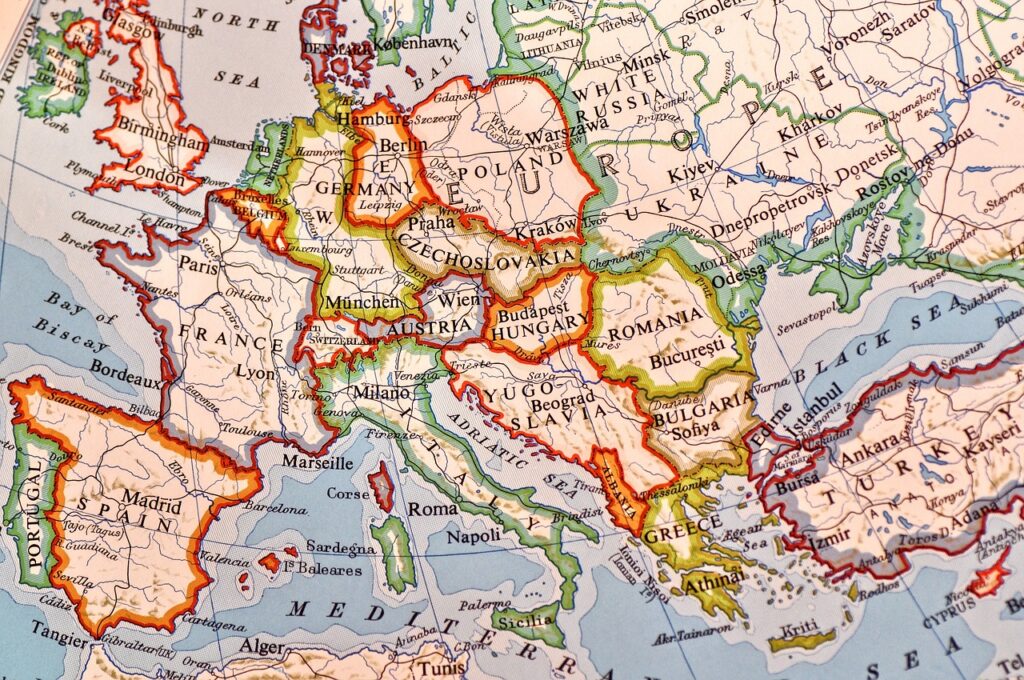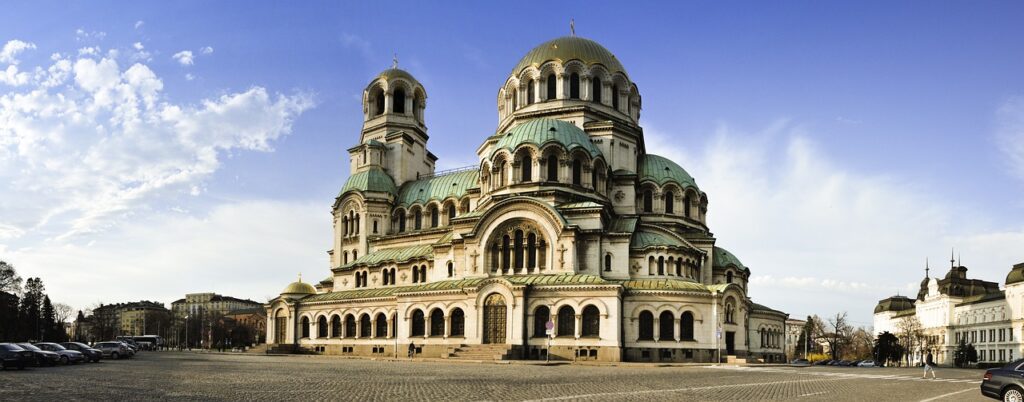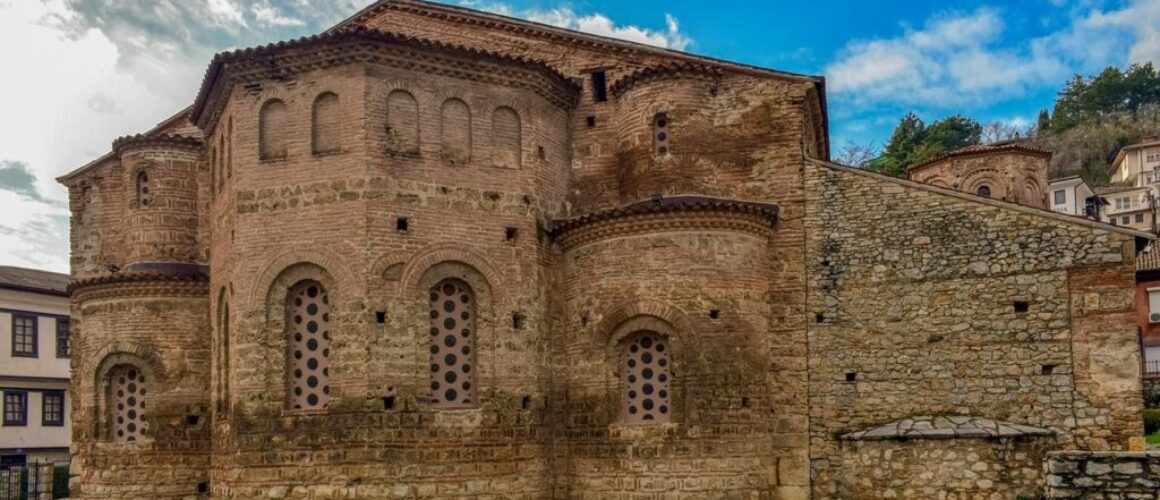All you need to know about Sofia, Bulgaria: A Blend of History, Culture, and Vibrant Nightlife
Sofia, the capital city of Bulgaria, is a vibrant metropolis nestled in the heart of Europe. As the largest city in the country, Sofia serves as Bulgaria’s political, economic, and cultural centre. For those wondering what’s the capital of Bulgaria, the answer lies in this dynamic city that seamlessly blends rich history with modern living. The city of Sofia is renowned for its diverse architecture, historical landmarks, and scenic beauty, all set against the backdrop of the majestic Vitosha Mountain. Exploring Sofia in Europe offers a unique experience where ancient traditions meet contemporary lifestyle, making it a must-visit destination in the capital city of Bulgaria.
1. Where is Sofia, Bulgaria?

Sofia, the capital city of Bulgaria, is located in the western part of the country in Eastern Europe. Nestled at the foot of the Vitosha Mountain, it serves as the political, economic, and cultural heart of Bulgaria. For those wondering where is Sofia city or Sofia in which country, it is the principal city of Bulgaria—a nation bridging Central and Eastern Europe. As Bulgaria’s capital city, Sofia holds significant importance due to its strategic location and rich history that dates back thousands of years. Known as София (Sofia in Bulgarian), the city is a vibrant blend of ancient heritage and modern development, making it a key destination in Sofia Bulgaria Europe.
2. A Historical and Cultural Overview of Sofia
Sofia’s rich history dates back over 7,000 years, beginning with ancient Thracian settlements. Throughout the centuries, it has been influenced by the Romans, Byzantines, Ottomans, and Soviets, each leaving a unique mark on the city’s cultural tapestry. As the capital city of Bulgaria, Sofia has played a pivotal role in shaping the nation’s identity and heritage. One of the major cultural landmarks is The Red Flat – Everyday Life in Communist Bulgaria, a museum offering insights into daily life during the communist era. When exploring Sofia Bulgaria sights and pondering what to visit in Sofia, you’ll find a city steeped in history yet brimming with modern energy. The city of Sofia stands as a testament to Bulgaria’s resilience and cultural richness, making Sofia in Bulgaria a destination of profound historical significance.
3. Is Sofia Worth Visiting?
Absolutely, Sofia is worth every moment of your visit. The city offers a unique blend of ancient history, vibrant culture, and modern dynamism. From its historic landmarks to its bustling streets, Sofia capital city provides an immersive experience that caters to all types of travelers. One of the compelling reasons to visit Sofia Bulgaria is its affordability, making it an accessible destination without compromising on experiences. Whether you’re considering a city break in Sofia Bulgaria or a longer stay, you’ll discover that Sofia is worth a visit for its friendly locals, rich traditions, and captivating attractions.
4. Things to Do in Sofia

When it comes to things to do in Sofia, the city does not disappoint. Start with a visit to the magnificent Alexander Nevsky Cathedral, one of the largest Eastern Orthodox cathedrals in the world. Stroll down Vitosha Boulevard, the main commercial street lined with shops, cafes, and restaurants. For those wondering what to do in Sofia Bulgaria, exploring the National Palace of Culture or hiking in the nearby Vitosha Mountain are excellent options. The Sofia Bulgaria food scene is vibrant, so be sure to try authentic Bulgarian cuisine at local eateries. As the sun sets, delve into Sofia’s vibrant nightlife, which offers everything from cozy bars to lively clubs. In essence, Bulgaria Sofia things to do are diverse, ensuring that every visitor finds something to enjoy among the many Sofia things to see and do.
5. Practical Tips for Travelers
When planning your visit, you might ask, is it safe in Sofia Bulgaria? Generally, Sofia is considered a safe city for tourists, with standard precautions advised against petty crimes like pickpocketing. The Sofia Bulgaria city centre is well-connected and easily navigable, especially with the Metro Sofia BG, which offers efficient transportation across the city. The local currency is the Bulgarian Lev, and while English is not universally spoken, many young people and those in the tourism industry communicate effectively. Learning a few phrases in Bulgarian can enhance your experience. Don’t forget to visit a traditional Bulgarian shop for unique souvenirs to take home.
6. The Best Time to Visit Sofia
The best time to go to Bulgaria and enjoy Sofia largely depends on your weather preferences. The weather in Sofia Bulgaria in October is crisp and cool, with autumn colours painting the cityscape, making it ideal for sightseeing without the summer crowds. Alternatively, Sofia Bulgaria weather in May offers pleasant temperatures and blooming parks, perfect for outdoor activities. Whether you prefer the mild warmth of Sofia October weather or the fresh spring ambiance, each season brings its own charm to the city.
7. Food and Nightlife in Sofia
Sofia boasts a rich culinary scene where you can savour must-try Bulgarian dishes like banitsa, shopska salad, and hearty stews. The local dining scene ranges from traditional taverns to modern eateries, catering to all tastes. After a day of exploration, experience the nightlife in Bulgaria Sofia, which is both lively and diverse. From jazz clubs to dance venues, there’s something for everyone. For relaxation, consider indulging in a rejuvenating massage in Sofia Bulgaria, offered by numerous reputable wellness centres across the city.
8. Fun Facts About Sofia
Did you know that Sofia is one of the oldest capitals in Europe? With a population exceeding 1.2 million, it’s not just the Sofia Bulgaria city but also a melting pot of cultures and traditions. Unique landmarks like the Boyana Church, a UNESCO World Heritage site, and quirky facts—such as the abundance of mineral springs—add to the city’s allure. The city Sofia continues to grow and evolve, balancing its rich past with a progressive future, contributing to the many Bulgaria fun facts that intrigue visitors.
9. Planning Your Trip to Sofia
When planning your trip to Sofia, consider the convenient flight options into Sofia Airport, which is well-connected to many European cities. The Sofia Bulgaria city centre is easily accessible by public transport, taxi, or shuttle services. For accommodations, the city offers a range of options from luxury hotels to budget-friendly hostels. Exploring the Bulgaria Sofia map can help you identify key areas to stay, such as near Vitosha Boulevard or the historic district. Don’t miss the opportunity for nearby day trips to places like the Rila Monastery or Plovdiv. The bus station Sofia serves as a hub for regional excursions, making it easy to expand your Bulgarian adventure. So, make sure to visit Sofia city and immerse yourself in all it has to offer.
10. Conclusion
In summary, Sofia is a captivating blend of history, culture, and modern life—a true gem in Eastern Europe. From its ancient roots to its vibrant present, the capital city of Bulgaria invites you to explore its many facets. Whether you’re drawn by historical landmarks, culinary delights, or the warm hospitality of its people, Sofia promises an unforgettable experience. Don’t wait—plan your visit to Sofia and experience its charm firsthand!
